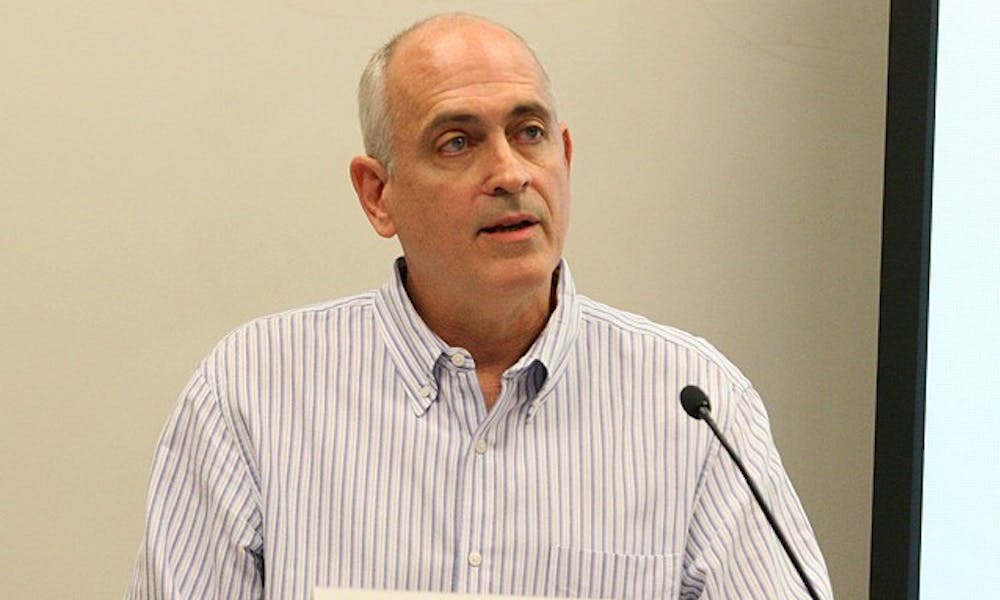A new option may soon be available for graduate students who want to study public policy and the environment.
Professors from the Nicholas School of the Environment and the Sanford School of Public Policy presented a proposal to create a doctoral degree in environmental policy at the Academic Council meeting Thursday. If the degree is approved, it will be the first joint Ph.D. program between a policy school and an environment school in the country, said Randall Kramer, professor of resource and environmental economics at the Nicholas School.
“Duke is very well situated to mount a top-notch program in environmental policy,” Kramer said. “We believe the program will quickly emerge as a top-tier Ph.D. program.”
He said the five-year program would require students to take courses in the political economy of public policy and environmental or resource economics and concentrate in a discipline such as economics or political science. Students would also take courses in research methods and do fieldwork.
Ph.D. candidates would be funded primarily through teaching assistantships and research assistantships, said Jacob Vigdor, director of graduate studies in Sanford and a professor of public policy and economics.
According to a proposal submitted to the Academic Council, four students would be admitted each year to the program initially. Ultimately, the program intends to have about 30 students.
If the Academic Council votes to approve the program at its October meeting, the new degree will be submitted to the Board of Trustees for final approval.
Council members also heard an update on Duke’s financial situation from Provost Peter Lange and Executive Vice President Tallman Trask.
Lange said financing undergraduate financial aid may become more difficult in the future. The University budgeted enough money to cover financial aid this year, but has used up much of its reserves to do so. He said that in past years, the Trustees have provided additional funding to cover the cost of financial aid.
Trask said that although the economy has improved somewhat, Duke is still working to cut $125 million from its annual budget over the next three years.
He noted that the early retirement of 295 biweekly employees over the summer will help the University meet its financial goals. Trask has said those retirements will save the University between $15 and $20 million this year.
A second round of early retirement offers will be extended to about 100 carefully-chosen salaried employees in October. If 10 to 20 employees choose to retire under this plan as projected, it would save the University just below $5 million, Trask said last week.
To meet budget goals, Lange said he has been working closely with the deans of every school. Budget meetings normally begin in November or December, but this year Lange began meeting with deans in May, he said.
“Our goal has been to maintain academic excellence and momentum,” he said, adding that deans have been told to prioritize hiring some professors in their budgets.
He noted that Duke has authorized 57 faculty hires in the 2009 fiscal year.
Duke’s budget will also be aided by an influx of federal stimulus funds, Lange said. As of Sept. 18, Duke will receive $96 million in stimulus funds, $67 million of which will go to the School of Medicine.
Get The Chronicle straight to your inbox
Signup for our weekly newsletter. Cancel at any time.

